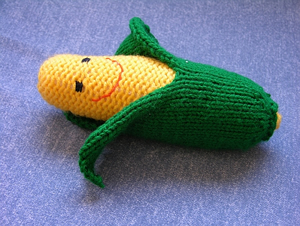September 2nd, 2009 by KevinMD in Better Health Network, Health Tips
No Comments »

by Steve Perry, MD
I recently read a post by Dr. Bob Sears which listed several “Vaccine Friendly Doctors” in Colorado and across the nation.
As a pediatrician and vaccine advocate, I thought I’d be on this list. I am “vaccine-friendly doctor” who works with moms and dads to find the best health care plan for their babies. I read the information on both sides of the issue and weighed the science against the emotional worry that so many parents feel about vaccines. While I always recommend vaccination by the CDC schedule, I always listen to parents concerns.
But, much to my surprise, I was not on this list. After a looking closer, I found that those on the list are a small population of physicians that are “friendly” to the “alternative” or delayed vaccine schedule outlined in Dr. Sears’ The Vaccine Book. The delayed vaccine schedule calls for a drawn-out vaccine plan based on Dr. Sears’ beliefs on calming parental vaccine fears. This delayed schedule has no research or science backing it, it is simply one pediatrician’s opinion.
The biggest medical problem with the delayed schedule is that it leaves babies open to disease for a longer period of time. If a baby is vaccinated by the CDC’s tried, tested and true vaccine schedule, that baby will have immunity to over 14 diseases by the age of two! With the CDC recommended schedule, babies visit their doctor five times in the first 15 months and receive protection against up to 14 diseases in as little as 18 shots if using combination vaccines, or as many as 26 shots if using individual antigens.
We immunize children so young against these diseases because infancy is the time period that kids are MOST vulnerable to life-threatening diseases. The people at greatest risk of dying from vaccine-preventable disease are the very young and the very old. We vaccinate to save lives.
On the delayed schedule, by 15 months of age children will have only received immunity against eight diseases. They miss out on measles, rubella, chickenpox, Hep A, and Hep B. By 15 months, children on this delayed schedule are given 17 shots and visit the doctor’s office 9 times – almost twice as many visits to the doctor as the CDC schedule.
Beyond Dr. Sears advocating for a medically untested vaccine schedule, I was dismayed at his classification of physicians like myself who vaccinate according to the CDC schedule. Because we follow the American Academy of Pediatrics and the CDC’s vaccine guidelines we are “unfriendly” doctors? Because I am following the science of my colleagues I am an “unfriendly” doctor?
This type of misinformation is damaging to families and physicians. It is the power of words that plant seeds of doubt in the minds of parents to fear vaccines. It’s this misleading information that manipulates parents into feeling that they are bad parents if they don’t question the safety and validity of vaccines.
As a pediatrician, I know it can be confusing for parents who get so much information about vaccines every day online and on TV. We all want to be informed advocates for our children’s health. Reading a balance of both sides allows parents to make an informed choice.
The best place to start the conversation about vaccines is with your pediatrician or by reading reputable sites like the Colorado Children’s Immunization Coalition at www.childrensimmunization.org. This non-profit does not accept donations from pharmaceutical companies and works to improve childhood vaccination rates across Colorado.
The reason I became a pediatrician was to protect children from illness and disease. Dr. Bob may only define “vaccine-friendly doctors” as those who promote his book, but the overwhelming data on the effectiveness and safety of vaccination makes it easy for us all to become a vaccine-friendly community. I hope that parents take time to read information on both sides of the issue, brings their questions to their physician and makes fully informed decisions about their child’s health.
Steve Perry is a pediatrician at Cherry Creek Pediatrics in Denver, Colorado and co-chair of the Colorado Children’s Immunization Coalition’s Policy Committee.
*This blog post was originally published at KevinMD.com*
July 23rd, 2009 by Paul Auerbach, M.D. in Better Health Network, Book Reviews
No Comments »

 Michael Gighlieri and Thomas Myers are coauthors of Over the Edge: Death In Grand Canyon, which is one heck of an interesting read. It is an encyclopedic rendition of all of the fatal accidents known (at the time of the writing) to have occurred in the Grand Canyon. The over-arching observation, made by the authors and almost certainly by the readers, is that the vast majority of these deaths were avoidable. Failure to recognize risk, or frank disregard for hazards, led to tragic loss of human lives. For every person who died, countless more suffered.
Michael Gighlieri and Thomas Myers are coauthors of Over the Edge: Death In Grand Canyon, which is one heck of an interesting read. It is an encyclopedic rendition of all of the fatal accidents known (at the time of the writing) to have occurred in the Grand Canyon. The over-arching observation, made by the authors and almost certainly by the readers, is that the vast majority of these deaths were avoidable. Failure to recognize risk, or frank disregard for hazards, led to tragic loss of human lives. For every person who died, countless more suffered.
Early in the book and at intervals thereafter, the authors apologize for the graphic descriptions and for articulating the opinion that the fatalities were avoidable. They are apologizing for accurately observing that people can be uninformed, or informed and foolish. There is, of course, an element of risk inherent in many outdoor recreational activities, but the authors present an entirely different spin on risk – namely, unambiguously unnecessary risk. They are correct – too many people have paid the price, in the theme of this book, with loss of life and great emotional suffering (presumably) to family and friends.
There is a bit of adventure in the telling of tales, but this is not an adventure book. It is, rather, a series of accountings, some written in great detail and some more superficially. There is nothing boring about this book, but it is easily put down after a section is completed.
From the back cover: “Two veterans of decades of adventuring in Grand Canyon chronicle the first complete and comprehensive history of Grand Canyon misadventures. These episodes span the entire era of visitation from the time of the first river exploration by John Wesley Powell and his crew of 1869 to that of tourists falling off its rims today. These accounts of the nearly 600 people who have met untimely deaths in the Canyon set a new high water mark for offering the most astounding array of adventures, misadventures, and lifesaving lessons published between two covers. Over the Edge promises to be the most intense yet informative book on Grand Canyon ever written.”
The major and minor sections represent the categories of accidents: falls from the rims, falls within the canyon, heat illness (and dehydration), flash floods, river accidents (including crossings and drownings), air accidents, rockfall, envenomations, freak accidents, suicide, and murders.
The book is replete with lessons learned and safety advice – all of it useful for educators, adventurers, explorers, search and rescue personnel, and casual visitors. The book truly serves a purpose, which is to articulate history in such a way that the reader can learn from it, and hopefully, avoid the catastrophes that befell the unfortunate victims portrayed in these tales. Other interesting books co-authored by Dr. Myers are Fateful Journey – Injury and Death on Colorado River Trips in Grand Canyon and Grand Obsession – Harvey Butchart and the Exploration of Grand Canyon.
This post, Book Review – Over the Edge: Death in Grand Canyon, was originally published on
Healthine.com by Paul Auerbach, M.D..
November 25th, 2008 by Dr. Val Jones in Audio, Expert Interviews
7 Comments »

Photo Credit: authenticmaya.com
The blogosphere has been buzzing lately about the idea of “fecal transplants,” probably because this treatment (first studied in the 80’s) was recently mentioned on Grey’s Anatomy. Proponents of the therapy (which involves the introduction of donor stool into a patient via enema or naso-gastric tube) say that it can rejuvenate intestinal flora and cure c. diff colitis, and various inflammatory bowel disorders. I had my doubts about these claims and decided to interview gastroenterologist Dr. Brian Fennerty to get to the bottom (sorry abou the bad pun) of this issue.
Dr. Fennerty is a Professor of Medicine in the Division of Gastroenterology at Oregon Health & Science University in Portland, Oregon, where he also serves as Section Chief of Gastroenterology.
Listen to the podcast here:
[Audio:http://blog.getbetterhealth.com/wp-content/uploads/2008/11/brianfennertyfecallq.mp3]
Dr. Val: What exactly is a “fecal transplant?”
Dr. Fennerty: First, by way of background, you need to understand that the GI tract is populated with thousands of varieties of “good” bacteria that are essential for our health. If we didn’t have bacteria in our colon and small intestine, we would die. Fecal transplantation is the repopulation of a person’s gut bacteria (flora) with fecal matter from somebody else. Some argue that this helps to treat certain diseases.
Dr. Val: How is this procedure performed?
Dr. Fennerty: As it was originally described, fecal transplantation involved removing the undigested food particles from the stool sample of a “healthy” person, and then spinning it so that a pellet (of hundreds of thousands of species and quasi-species of bacteria) remains. The pellet is then introduced to the patient through a nasogastric tube into the small intestine, or the pellet can be resuspended in liquid and introduced into the rectum via an enema. The idea is that the bacteria will colonize the patient’s colon and squeeze out the bad bacteria that are in there.
Dr. Val: What are fecal transplants purported to do?
Read more »
November 11th, 2008 by Dr. Val Jones in Health Tips
5 Comments »
Several people have asked me if corn syrup is the root of all evil. This cheap, high calorie sweetener is adding hidden calories to everything from spaghetti sauce to condiments to peanut butter. But is it actually worse for you than “regular” cane sugar? Is there something special about corn syrup that makes it worthy of national vilification?
The truth is that corn syrup isn’t any “worse” than any other highly refined sugar – there’s nothing special about corn that makes it harmful to consume (unless maybe if you’re allergic to corn, but that’s another story). The real issue is that we humans love sweet things, and that food product manufacturers are simply adding sweetener to their products to cater to our taste buds. In so doing, hidden calories add up… and waist lines expand in response.
Folks with diabetes understand how difficult it is to find unsweetened products these days, and they have to work extra hard to avoid the high fructose corn syrup in so many foods. For those of us who don’t have diabetes (yet?) we’d probably do well to follow their example and consciously cut down on our sugar intake if not to manage our insulin levels, but at least to avoid unnecessary calorie consumption.
I myself am a bit of a sugar addict by nature – I resolved to cut down on carbs a few months ago and have dropped 10 pounds already. I have learned to like unsweetened almond milk, unsweetened organic ketchup, and I make my own sauces and avoid refined flour products.
In my next post I’ll speak with Penny M. Kris-Etherton, Ph.D., R.D., Distinguished Professor of Nutrition, Penn State University about what she learned at the recent American Dietetic Association Food & Nutrition Conference & Expo (FNCE) in Chicago. She’ll explain why all the fear mongering about corn is a bit exaggerated.















